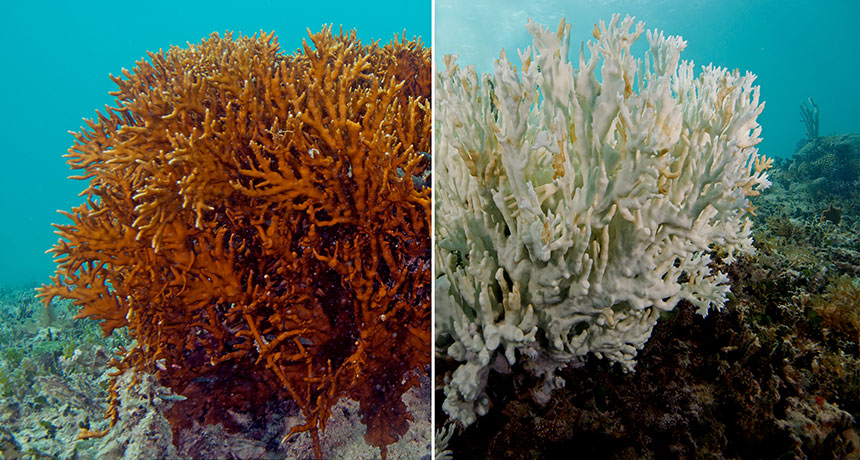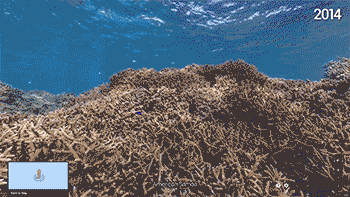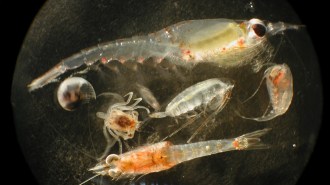Widespread coral bleaching threatens world’s reefs

BEFORE AND AFTER Healthy coral are full of color, like the fire coral seen on the left. But stressors, including overly warm ocean water, cause symbiotic algae to abandon coral tissues, bleaching them (right).
XL Catlin Seaview Survey





